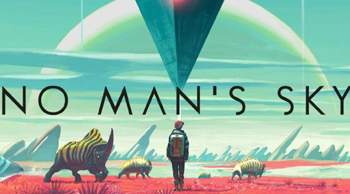5 Things I Learned Testing Video Games For A Living

The term "video game tester" brings one of two things to mind, either "My dream job!" or "The lazy bastards who somehow failed to notice the flying horses in Red Dead Redemption." The truth is somewhere in between. We talked to Alex, Corey, and Adrian, who have been testers for years and have pushed more than their share of broken games out the door.
Why? Well ...
It's Impossible To Fix Everything

You might not have noticed this, but almost every modern game ships with bugs these days.

The easy reaction is, "How in the hell did they miss that?" but there's actually a good chance they didn't. It just doesn't matter -- at a certain point they have to release a game no matter how broken it is, otherwise development costs skyrocket beyond expected revenue (this is called the Assassin's Creed Unity Dilemma). As Corey explained, the testers are never happy about it -- but there's a separation between them and the people who actually make the game.
"The conversations are always in notes. Sometimes they're in a different country. You'd write your bug and they'd send it back as 'Won't fix.' So then you'd have to talk to your lead. 'Hey, they don't want to fix this, they're being idiots about it, can I please send it back?' It's just this really passive-aggressive back and forth, sometimes it's just arguing at a brick wall."

This can be particularly infuriating when you discover a bug that actually breaks gameplay -- such as, say, a weapon that makes a level pointlessly easy: "When I was working on Halo 3, my main level when you're getting back to the Flood's ship. They're really tough to kill, except if you had a flamethrower. When the literal first pixel of fire hit them they died instantly. It took about two months of back and forth along the lines of 'Dude, seriously, you just walk through the level.' For some reason they just didn't feel like fixing it. Those are the weird battles you have to fight."
And, as Alex explained, there's just not that much motivation to be rigorous -- not when consumers have come to expect new games to have rough edges. "Keep in mind that most QA teams are 20 to 30 people, at absolute most. When the game goes live, hundreds of thousands to millions of people are playing it. Missing a deadline can be too damaging. It's easier to just let the early buyers do the first round of testing for you."
Take Skyrim. It takes over 200 hours to do everything in it, and players can spend hundreds more hours making their own adventures, like the Quest To Steal Everyone's Pants. So what do you do? You can't miss a release date, and hiring more testers just cuts into your profits. And if you know everyone's going to buy Fallout 5: Salt Lake City regardless, well ... we're not saying it's good that they release broken games -- we're just saying that you'd do it, too.

Testing Can Be Ridiculous Or Tedious, Depending On The Game

So what kind of bugs do you think the average tester squashes? Enemies accidentally being invincible, ammo not getting picked up, things like that? How about inadvertent space-alien-on-vehicle erotica? Because that's what Corey discovered in Halo 3.
"The brutes, these big purplish looking aliens, when they tried to attack you on a vehicle their attack was a headbutt. But because the brute model had no neck their headbutt was weird looking, it involved this pelvic thrust."
This is what a Brute looks like:

So imagine that you're driving along, and suddenly that sweet boy is humping away at your future tank. He never stops growling, so it's unclear if he's even enjoying it. But he really wants to penetrate your armor, and not in the military sense. That's what testers have to flag.
But hey, at least Corey got to play Halo. The single biggest misconception about testers is the assumption that they spend all day playing games that are only a few tweaks away from being on a store shelf. They're usually playing very early, very broken, versions of software that barely qualifies as a game yet.
"So much is missing and so much weird stuff happens that it's not even like playing a game. You start running through quests, you see if the guy you're supposed to talk to is even there. If he is, does he say anything, does he say the right things, does the quest trigger. From there it's graphical stuff -- is an item the right color, is the shield going through the guy's arm."

So you're not testing to see if headshots look sufficiently sick -- you're methodically checking every type of butter knife to make sure it does the five points of damage it's supposed to. The second biggest misconception is that everyone is testing popular, beloved games. Corey's first assignment was a Sims themed chat program, which is exactly as exciting as it sounds. It's not like you have a choice in the matter. "I Hoyle Card Games, and you get really tired of playing poker all day. You want to shoot or build something, you don't want to see another card ever."
Sometimes you don't even have to actually play the game -- when working on Fable: The Journey, a motion sensing Kinect game, Adrian discovered that he could park a coat stand in front of the Kinect and trick it into thinking it was a spindly human being. The stand took care of basic movement, Adrian could test to see if the game held up under several hours of play, and Microsoft finally discovered a demographic that gave a shit about the Kinect.

"Another fun testing method was for Fractured Space. I ended up placing a hammer on the keyboard to weigh down the W key, so I could fly forwards without having to do so manually. Shortly after I was seen using this 'method' the design team implemented a cruise control button. Score one for QA!"
Testers Are Required To Be World-Class Gamers -- No Matter What

Think about it -- they have to test everything, up to and including, "How does the game handle it when the most amazing player in the world pulls off a series of spectacular moves with pinpoint precision?" If the tester can't do that, well, too bad.
"I'm pretty good at fighting games, but I'm not great," says Corey. "Some have ridiculous 10 button combos, and sometimes I can't do those. Well, fuck. You can't cheat your way through it, that defeats the purpose of the test. So you have to sit there and practice the move all day until you get it."

Every gamer knows how frustrating it is to get stuck, but at least you can walk away, calm down, and not have your boss tell you to get back in there and spend hours mastering the single secret move that makes Barbie's horse eat a rival jockey. Have you ever played a game to relax after finishing a project with a tight deadline? For testers, the game is the deadline. You have to grind away at whatever you're stuck on for an hour, a day ... however long it takes you, which will be well past the point of fun.
"With Halo, . So we had to test that, and it was so ridiculously precise that you basically had to run by a line of people, empty the shotgun, reload it perfectly, and empty it again in all of their heads. It took all of us three days to get it. By the last day we're all sitting there going 'Fuck! Goddammit dude, can't you just stand still!' We all turned into horrible people. Finally someone got it and was surprisingly emotional."

They did end up dialing back that achievement to make it easier. But there is an upside to all that frustration -- as Alex says, you wind up with some superhuman gaming abilities. "I had just finished working on James Bond 007: Nightfire and some friends had rented it, not knowing that. They wanted to make a food run and I volunteered to unlock everything for them. They laughed it off and came back about an hour later and I had completed the game on difficulty. I brought up the credits, showed them my name and asked 'So, who's down for some multiplayer?'"
Lots Of Bad Games Were Just Too Ambitious

How often have you watched a video game trailer, been blown away by all its amazing features, bought the game when it finally came out two years later, and discovered that none of what you were sold on was in there? Well, testers get to play those features ... then watch as those once promising games cut idea after idea as the realities of time and money set in. Corey saw it when he worked on Motor City Online, an online racing game released in 2001 that wanted to have the realism of a racing game released in 2045.
Never heard of it, you say? Exactly.
"They went to mechanics and got statistics, and all the individual parts had the correct effect on the engine, and all of it was so beautifully intricate. But the problem was that it was so intricate it caused so many bugs and took so long to get working. So the engines way less detailed, you got maybe a dozen parts total. ... It's an eyes bigger than stomach situation."

The game flopped -- after so many delays and cuts, most people just stopped caring. As soon as the game broke even, its servers were killed so the albatross around the developer's neck could be taken off and strangled. The gaming world is full of stories like that -- every great-looking game that wound up disappointing you is, in reality, the death of someone else's dream. Take the 2004 platformer Malice:
" was in development hell for three years. It was huge, it had Gwen Stefani doing music and voicing a character. But it had I think literally 100 levels. And a dozen weapons and weird magic components, it was just too big for its own good. It crumbled under its own weight, eventually some version of it got released but they scrapped most of it. I remember seeing a copy of it in stores and thinking it was kind of sad. You know what the game could have been, because you play the game as it was intended before financial reality catches up with it."

In the worst cases, games are finished and then simply locked in a vault for eternity because the final product doesn't look profitable. Remember that Sims chat program Corey worked on? Yeah, there's a reason you never heard anything about it. That may not seem like any big loss, but wouldn't you have liked to play, say, Star Fox 2? In every case, these dead projects represent hundreds or thousands of hours of work that went right down the shitter.
Testers Get Screwed (And Soon You'll Be Getting Their Job)

A lot of kids get into testing straight out of high school or college with the dream that, in a few years, they'll be leading the development of the next Grand Theft Auto. In reality, they're more likely to be worked relentlessly until they burn out and get replaced like light bulbs.
"I've been in what we call testing pens where you wind up with four to five people squashed into a cubicle," says Alex. "It's illegal to make overtime mandatory. So, crunch time is technically voluntary. However, when you interview, one of the first questions will be if you are comfortable working long hours, weekends, and holidays. I have worked as many as 90 hours in a week approaching a game's release."

And so you can read story after story about how QA is a dead end, or a trap that naive gamers get enticed into. One company forced their testers to have a separate Christmas party in another building, another fired almost everyone after a big project ended. That's not to say it's all terrible -- our sources all like their jobs. But it's not the foot in the door so many hopeful young people are hoping for ... especially given the latest trend of releasing "early access" games on Steam, where developers sell you a game in its early stages and then maybe finish it later, if they feel like it. It's a model that worries Adrian.
"It is ultimately a concern of mine seeing a lot of games go the early access route as a way to allow buggy content to be released, or to abandon development without being held responsible. People are beginning to accept that you pay full price value for a buggy game in the hopes that it gets better as time goes on, which is a shame."

It's like car manufacturers discovering that people will happily buy a car with two tires as long as there's a promise that two more will come later. But only about 25 percent of early access games are fixed and finished. Many, many others are like Towns, which sold 200,000 copies, received almost universally negative feedback, and was promptly abandoned. That model is becoming normal, because why underpay an overworked team of testers to make games functional when we'll apparently give them money for the privilege of doing it for free?
Adrian encourages you to check out Fractured Space. Mark is on Twitter and has a book.
2016 is almost over. Yes the endless, rotten shit hurricane of a year which took away Bowie, Prince and Florence Henderson and gave us Trump, Harambe and the Zika virus is finally drawing to a close. So, to give this bitch a proper viking funeral, Jack O'Brien and the crew, which includes Dan O'Brien, Alex Schmidt, and comedian Caitlin Gill, are going to send out 2016 with Cracked's year in review in review. They'll rectify where every other year-in-review goes wrong by giving some much needed airtime to the positive stories from the 2016 and shedding light on the year's most important stories that got overlooked. Get your tickets here.
For more insider perspectives, check out 5 Things I Learned Making The Worst Game Of All Time and 5 Things We Learned Making The Biggest Flop In Game History.
Have a story to share with Cracked? Email us here.
Subscribe to our YouTube channel, and check out What Your Favorite Video Game Says About You and other videos you won't see on the site!
Follow us on Facebook, and let's be best friends forever.